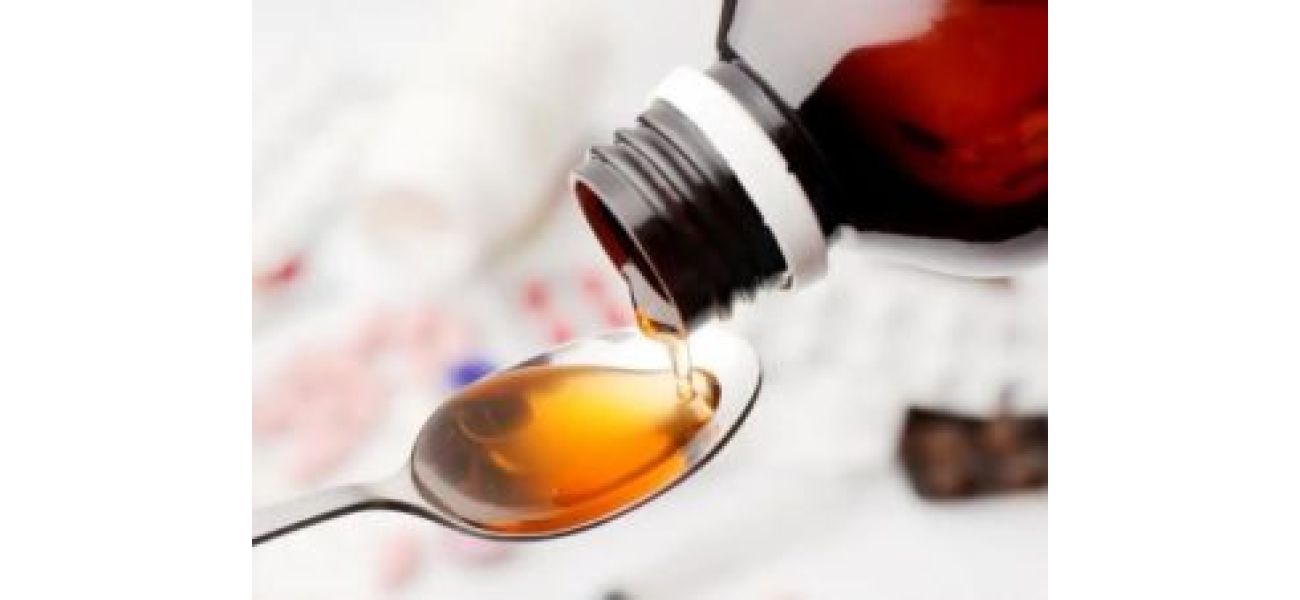Dangerous syrup for health.
Illegal drug use in India is a serious problem caused by corrupt pharmaceutical companies and doctors who are motivated to prescribe certain brands. This lack of regulation has led to harm and death among the public, with recent incidents involving children.
October 6th 2025.

The issue of drug adulteration in India is a grave concern, as a dangerous alliance between the powerful pharmaceutical industry and unprincipled doctors has wreaked havoc on the lives of innocent people. With little to no government oversight, this unholy partnership has resulted in countless tragedies. In just a matter of weeks, 14 children in Madhya Pradesh and two in Rajasthan have passed away due to kidney failure, allegedly caused by a specific brand of cough syrup.
Upon investigation by both Central and state drug regulators, it was discovered that the cough syrup, known as 'Coldrif', contained diethylene glycol (DEG) - a toxic industrial solvent used in antifreeze and brake fluids. This chemical is extremely hazardous, even in small amounts, and has been linked to kidney failure and death, especially in children. Shockingly, laboratory tests revealed that the syrup contained a shocking 48.6% of DEG. As a result, three states - Madhya Pradesh, Tamil Nadu, and Kerala - have banned the cough syrup, and Telangana has issued a public warning about the product.
In response to this tragedy, the Union Health Ministry has issued an advisory stating that cough and cold medications should not be prescribed or given to children under the age of two. They have also circulated directives to all state and Union Territory health services, urging them to ensure compliance. In Madhya Pradesh, a doctor named Praveen Soni was arrested for prescribing the toxic syrup to multiple children, and the state government has filed a case against the manufacturer, Sresan Pharmaceuticals, based in Tamil Nadu.
In addition, the Central Drugs Standard Control Organisation has initiated risk-based inspections of manufacturing units in six states - Himachal Pradesh, Uttarakhand, Gujarat, Tamil Nadu, Madhya Pradesh, and Maharashtra - after collecting 19 samples, including cough syrups, antipyretics, and antibiotics. Unfortunately, these measures were only taken after lives had already been lost. A stronger regulatory system could have prevented these tragedies.
This incident has once again brought India's pharmaceutical industry under international scrutiny. In 2022, the World Health Organization (WHO) linked Indian-made cough syrups to the deaths of 70 children in Gambia, although this claim was disputed by the Indian government. The following year, Nepal blacklisted 16 Indian pharmaceutical companies, accusing them of not meeting WHO-prescribed standards for good manufacturing practices. And in another alarming incident, WHO issued a global alert after 18 children died in Uzbekistan due to toxic contaminants found in Indian-made medicines sold in Iraq. These incidents raise serious concerns about the country's drug manufacturing and quality control standards, despite its reputation as the "pharmacy of the world."
India's pharmaceutical industry is responsible for producing 20% of the world's medicines and 60% of its vaccines, making it a global leader in providing affordable healthcare solutions. Its most significant achievement lies in the production and export of generic drugs - medications that contain the same active ingredients as branded versions but are sold at significantly lower prices after the patent expires. These cost-effective generics have greatly increased access to essential medicines worldwide and remain the backbone of India's pharmaceutical exports, contributing to nearly 70% of the country's total pharmaceutical export revenue.
It is important to note that while other countries have taken swift punitive measures against Indian drugmakers for their wrongdoings, India has not responded in the same manner. This lack of action may be attributed to the low value placed on human life and the prevalence of corruption in the country.
With India's high disease burden - among the highest in the world - drug adulteration poses a significant threat to public health and could potentially lead to a public health emergency if urgent measures are not taken. However, it would be unfair to place all the blame on the government for these regulatory failures. The government, at both the Union and state levels, lacks qualified and dedicated personnel who take their responsibilities seriously. It is undeniable that the quality of medicine production should be a top priority and must be impeccable. But in considering this aspect, we must also take into account the motives of the owners of these drug manufacturing units, who may be driven by profit and may even be bribing doctors to prescribe their products. Moreover, the marketing team may also be pressuring for higher sales, leading to shortcuts being taken during the production process. And, unfortunately, there may be substandard workers at the factory level who do not prioritize the precise proportions of chemicals in the formulations. Ultimately, closer inspection of all products is necessary. However, the question remains - which authority can remain above greed, corruption, and inefficiency, and for how long? This is a question that all Indians must ask themselves before placing blame.
Upon investigation by both Central and state drug regulators, it was discovered that the cough syrup, known as 'Coldrif', contained diethylene glycol (DEG) - a toxic industrial solvent used in antifreeze and brake fluids. This chemical is extremely hazardous, even in small amounts, and has been linked to kidney failure and death, especially in children. Shockingly, laboratory tests revealed that the syrup contained a shocking 48.6% of DEG. As a result, three states - Madhya Pradesh, Tamil Nadu, and Kerala - have banned the cough syrup, and Telangana has issued a public warning about the product.
In response to this tragedy, the Union Health Ministry has issued an advisory stating that cough and cold medications should not be prescribed or given to children under the age of two. They have also circulated directives to all state and Union Territory health services, urging them to ensure compliance. In Madhya Pradesh, a doctor named Praveen Soni was arrested for prescribing the toxic syrup to multiple children, and the state government has filed a case against the manufacturer, Sresan Pharmaceuticals, based in Tamil Nadu.
In addition, the Central Drugs Standard Control Organisation has initiated risk-based inspections of manufacturing units in six states - Himachal Pradesh, Uttarakhand, Gujarat, Tamil Nadu, Madhya Pradesh, and Maharashtra - after collecting 19 samples, including cough syrups, antipyretics, and antibiotics. Unfortunately, these measures were only taken after lives had already been lost. A stronger regulatory system could have prevented these tragedies.
This incident has once again brought India's pharmaceutical industry under international scrutiny. In 2022, the World Health Organization (WHO) linked Indian-made cough syrups to the deaths of 70 children in Gambia, although this claim was disputed by the Indian government. The following year, Nepal blacklisted 16 Indian pharmaceutical companies, accusing them of not meeting WHO-prescribed standards for good manufacturing practices. And in another alarming incident, WHO issued a global alert after 18 children died in Uzbekistan due to toxic contaminants found in Indian-made medicines sold in Iraq. These incidents raise serious concerns about the country's drug manufacturing and quality control standards, despite its reputation as the "pharmacy of the world."
India's pharmaceutical industry is responsible for producing 20% of the world's medicines and 60% of its vaccines, making it a global leader in providing affordable healthcare solutions. Its most significant achievement lies in the production and export of generic drugs - medications that contain the same active ingredients as branded versions but are sold at significantly lower prices after the patent expires. These cost-effective generics have greatly increased access to essential medicines worldwide and remain the backbone of India's pharmaceutical exports, contributing to nearly 70% of the country's total pharmaceutical export revenue.
It is important to note that while other countries have taken swift punitive measures against Indian drugmakers for their wrongdoings, India has not responded in the same manner. This lack of action may be attributed to the low value placed on human life and the prevalence of corruption in the country.
With India's high disease burden - among the highest in the world - drug adulteration poses a significant threat to public health and could potentially lead to a public health emergency if urgent measures are not taken. However, it would be unfair to place all the blame on the government for these regulatory failures. The government, at both the Union and state levels, lacks qualified and dedicated personnel who take their responsibilities seriously. It is undeniable that the quality of medicine production should be a top priority and must be impeccable. But in considering this aspect, we must also take into account the motives of the owners of these drug manufacturing units, who may be driven by profit and may even be bribing doctors to prescribe their products. Moreover, the marketing team may also be pressuring for higher sales, leading to shortcuts being taken during the production process. And, unfortunately, there may be substandard workers at the factory level who do not prioritize the precise proportions of chemicals in the formulations. Ultimately, closer inspection of all products is necessary. However, the question remains - which authority can remain above greed, corruption, and inefficiency, and for how long? This is a question that all Indians must ask themselves before placing blame.
[This article has been trending online recently and has been generated with AI. Your feed is customized.]
[Generative AI is experimental.]
0
0
Submit Comment





